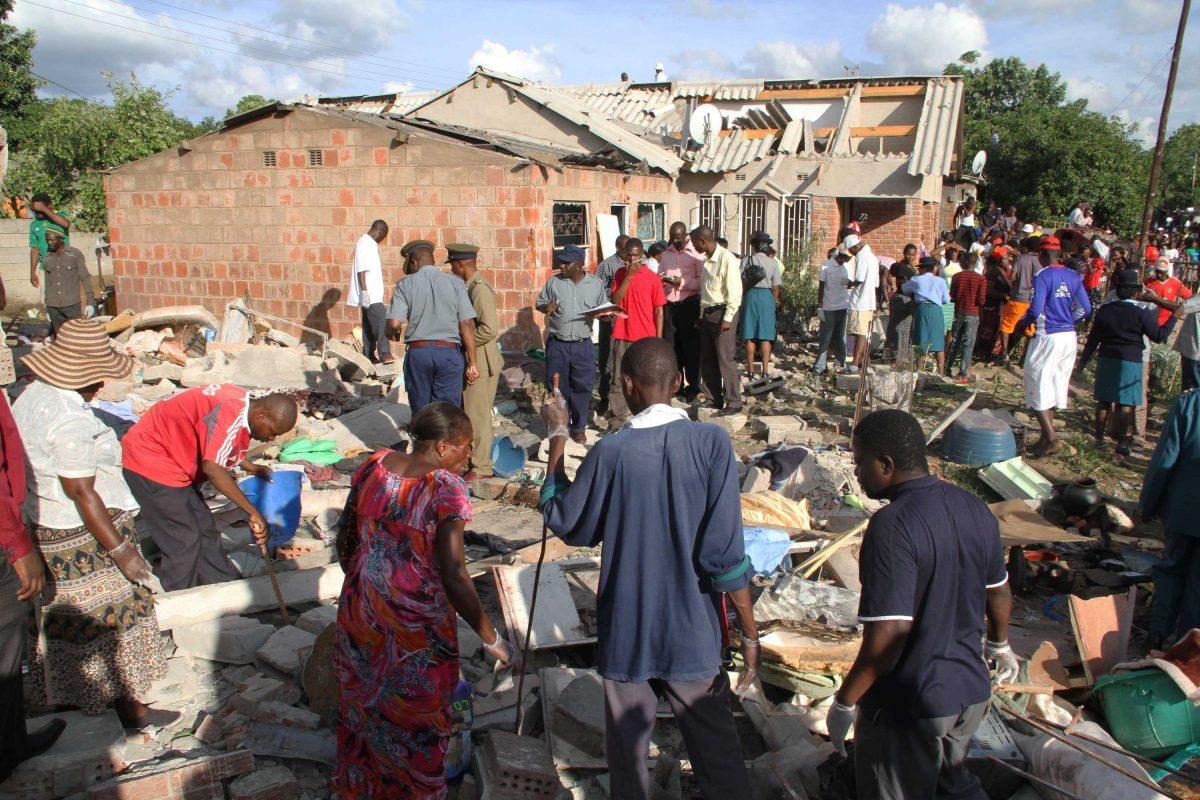HARARE, Zimbabwe (AP) — Police in Zimbabwe said Wednesday they found traces of explosives at a tribal sorcerer’s house where a massive blast killed six people and damaged 12 nearby buildings.
Police official Charity Charamba said the sorcerer and assistants, one of them a former police officer, were suspected of trying to extract a compound of mercury sometimes used in the manufacture of explosive materials.
Five people, including the sorcerer, often referred to in the West as a witchdoctor, died on the spot on a township street outside Harare on Jan. 21 and the sixth died later. Neighbors at first feared the explosion was a traditional ritual to produce a deadly lightning bolt meant to strike down enemies or evil spirits.
Charamba said mercury compounds known locally as “red mercury” are often thought to fetch huge prices on illegal markets.
In recent months, police have been investigating three cases of people attempting to open the casing of explosive devices. In one, a man lost fingers when a grenade he was tampering with exploded. In eastern Zimbabwe, two suspects were arrested trying to sell mortar bombs.
“Those selling were claiming that the mortar bomb contains mercury which fetches a lot of money on the black market and they can become millionaires overnight. Possession of explosives is illegal and they are highly dangerous,” Charamba said.
Many impoverished Zimbabweans believe “red mercury,” which is not an accurate scientific term for explosive mercury derivatives, can sell for up to $300,000 a kilogram (2.2 pounds).
After the explosion in Chitungwiza, 25 kilometers (15 miles) south of Harare, panicked neighbors spread coarse salt around the site, an ancient tribal remedy to ward off avenging spirits.
Zimbabwe’s local media has conjured with a range of theories on the potency of traditional African sorcery since the township explosion.
A survivor claimed it was an exorcism gone wrong. Clara Banda told reporters she was part of a group of tribal healers tasked with destroying a mystical creature, commonly known as a goblin, used to enhance the fortunes of the businessman who died on the scene.
She said the sorcerer was offered $15,000 by the businessman to kill the goblin which he claimed was making “extreme demands” on him and even threatened his safety.
The sorcerer, the businessman and his helpers told her the goblin had to be beheaded. But she heard the sorcerer cry out that the goblin was fighting back, and then there was the explosion, the state media quoted her saying.
The Zimbabwe National Traditional Healers Association, an organization of tribal healers, said the possibility of it being a “cleansing ceremony” that “wasn’t done in the proper manner” could not be ruled out by highly superstitious followers of centuries-old African cultural beliefs.
Sometimes inflammable concoctions are used in rituals and tribal healers need to be vetted and properly qualified to perform such cleansing ceremonies, said ZINATHA spokesman George Kandiero.
The dead sorcerer was identified as Speakmore Mandere, a dreadlocked 24-year-old.
“We need to clear people to perform such rituals and we have to look at whether the person is qualified for something of that magnitude,” Kandiero told The AP. “We need to bring these people to book; they are bringing our name into disrepute.”
Social anthropologist Watch Ruparanganda of the University of Zimbabwe said belief in witchcraft is deeply rooted in Zimbabwean culture.
In Zimbabwe’s mystic realm, a goblin may exact revenge on its owner if it had made him rich and then he wanted to discard it without fulfilling his part of the bargain by honoring its demands for sacrificial offerings including human blood, he said.
“People must not pretend they don’t know about black magic,” Ruparanganda. “We know witchcraft is there in our society, it is undisputable.”







